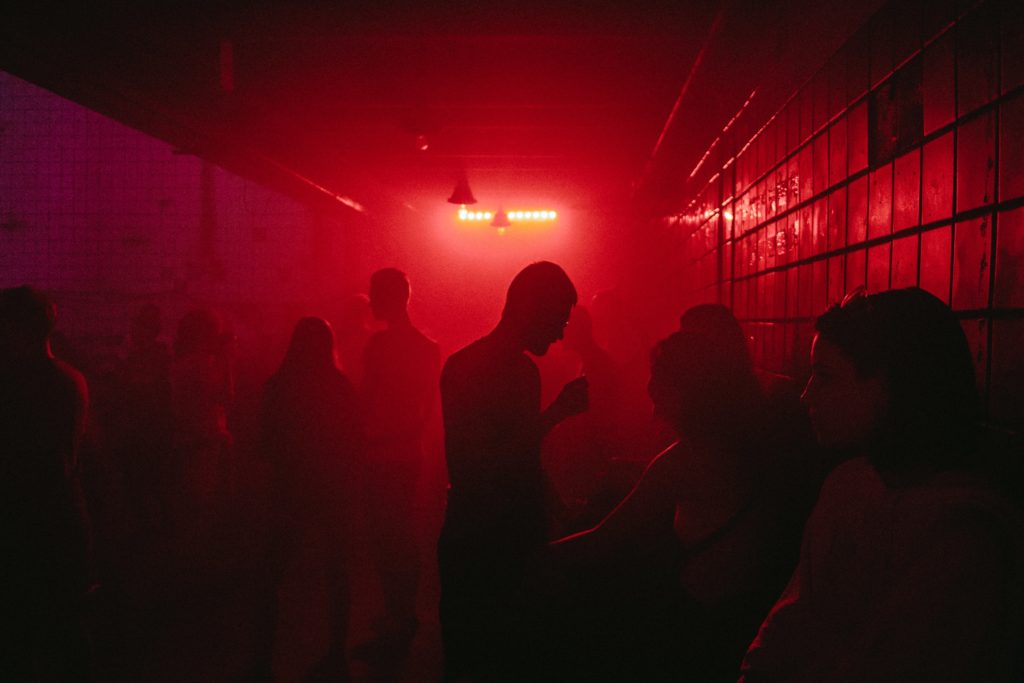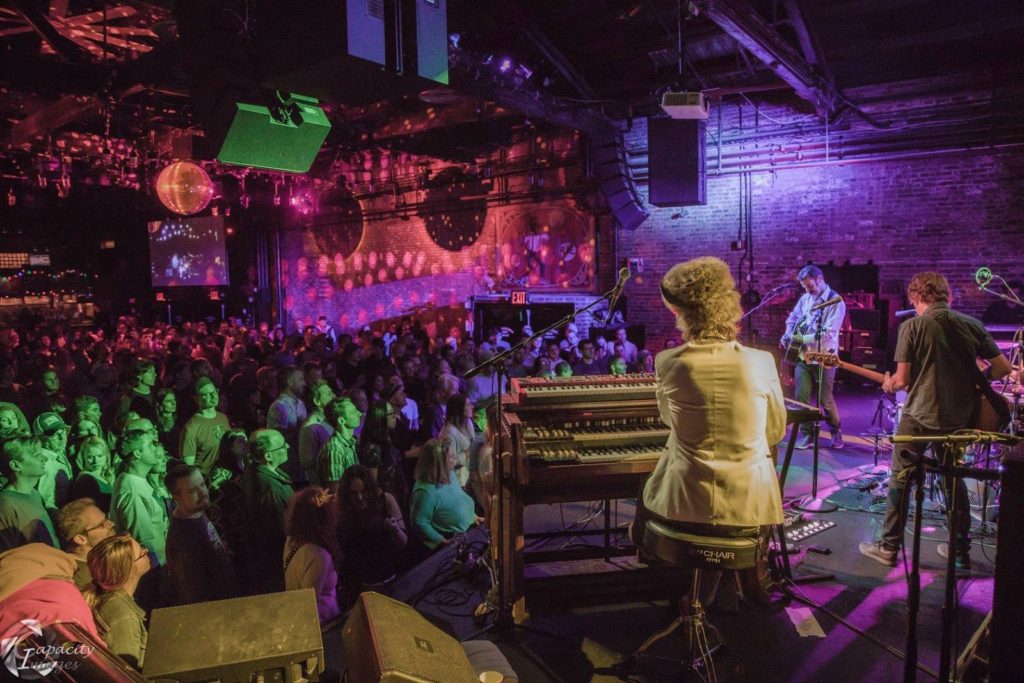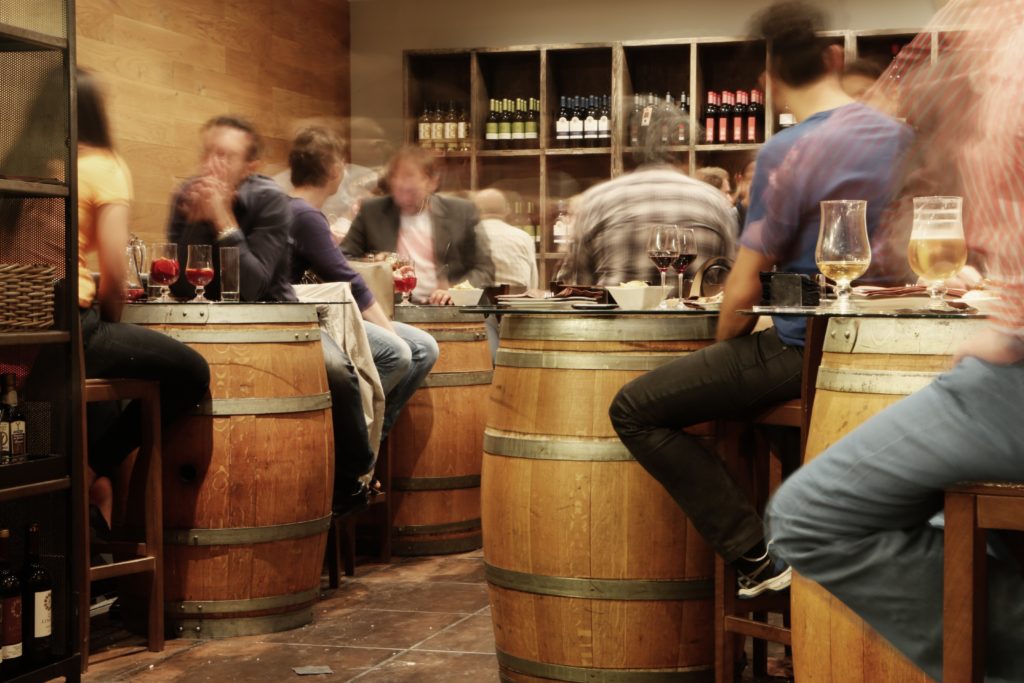
From Cornfields to Downtown: John Ugolini Tells the Story of Kickstand Productions
John Ugolini launched his company, Kickstand Productions, after graduating from Northern Illinois University in 2004. He learned the ropes booking rooms in secondary markets in central Illinois before moving into Chicago about a decade ago. His calendar is packed—he often has multiple events running each night—and the shows he promotes represent a wide range of genres and styles.
“We produce events and work with a lot of artists regularly,” Ugolini says. “We have a few venues that are clients of ours, like Subterranean and Beat Kitchen in Chicago, and then a network of venues in the midwest that we work with in producing shows. But the bands change every day.”
We spoke with Ugolini about how he got his start as a concert promoter, his strategies for booking shows and creating a diverse calendar, and his secret—if you can call it that—for discovering new talent.
How did you get into this?
I was the victim of a practical joke while attending Northern Illinois University in DeKalb. My friends thought it would be funny to nominate me, unknowingly, for a position within our residence hall’s student government. The following week they dragged me to the election where I was asked to give an impromptu speech. I ended up winning the vote and was sworn in as the Programming Vice President of the NIU Douglas Hall Council. I tried to resign—because it was a joke and I had no intention of following through—fortunately the President talked me into keeping the job. I probably wouldn’t be in the concert business if it weren’t for that job. I put on my first concert in the Douglas Hall cafeteria and immediately fell in love with it. The experience gave me the inspiration to write my own music, start a band, and begin setting up shows independently around town—in basements, VFWs, Elks Lodges, and places like that. I later was hired for the position of concert chair at the Campus Activities Board at NIU.
Did they give a budget to work with?
We had a relatively modest budget. It was just your standard campus activities board concert chair gig, setting up shows for the students on campus. I did that for a couple of years, prior to starting Kickstand in 2003. In our formative years, we served as the talent buying office for the House Cafe and Ottos Nightclub in DeKalb, before eventually branching out and producing events in other markets in the midwest.
Why is that called “Talent Buying?”
Somewhere along the line the title of “Concert Promoter” may have developed a negative stigma. “Talent Buyer” is probably the more formal title.
Do you have strategies for booking shows and putting together a concert calendar?
It really depends on the venue and the market. I quickly found that if I only programmed the music that I liked, I’d find myself out of business [laughs]. Talent buyers and promoters often fall into the roles that they do based on their ability to fill a specific need in a market. For me, booking in DeKalb, I produced a lot of all ages shows simply because there wasn’t a place hosting all ages shows at the time. The bands that I wanted to see weren’t represented in DeKalb so I filled that need to a modest degree. That’s the wonderful thing about local music scenes, there are countercultures, movements and pockets of people constantly developing and serving the needs of the community. I try to balance my voice as a buyer, booking artists that appeal to me, that serve the vibe or aesthetic of the room or event I’m programming—while identifying different needs in the market that I might be able to serve.
Do you have a niche?
I would say it has changed over time. We work predominantly within the indie and punk world, subculture-based stuff, but we’re constantly experimenting. We’ve promoted shows with everyone from Snoop Dogg to Jimmy Eat World to Amy Schumer. I feel fortunate cutting my teeth booking secondary markets, because when you book a market in the middle of a cornfield like DeKalb, you have to broaden your horizons. You can’t hang your hat on any one thing simply because there isn’t enough of a population base to support a single-track approach. Out of necessity, we would book everything—thrash metal bands one night, jazz the next, to a jam band the night thereafter. I am really grateful for that experience because it made me resilient and it opened my eyes and ears to a lot of new music.
Do you sneak in bands you’re passionate about as opening acts?
Absolutely. 100 percent. Everybody has their passion projects as a buyer. One of the most rewarding aspects of the job is developing relationships with bands that you enjoy, and working with people you enjoy. It’s a great feeling watching a band grow from the ground level.
Where do you go to discover new talent?
This is one of those white whale questions for me. What is the best source for artist discovery? Is there some new blog out there that I am not aware of? Should I be looking at different social metrics? Should I be more in tune with TikTok? There are seemingly endless ways to discover new music and that’s one of the incredible things about the day-and-age that we live in. But no matter what, no matter how much I search, and no matter how many of these channels or blogs or charts I study, ultimately, I find the best stuff through word of mouth—through attending shows. That would be the most successful way for me. It’s talking to people and friends within the industry, talking to the artists we work with. Going to shows.
So there are no secrets, it’s just about talking to people?
Right, and that’s what’s funny, I’ve been searching this whole time for some secret but it’s really the most basic fundamental aspect of our business. It’s the bedrock. “Have you heard this band? Check them out!”

Matt Ford is the founder and CEO of Prism.fm, an Austin-based software company revolutionizing live music event management. With a background in entrepreneurship and a degree from the University of Wisconsin-Madison School of Business, Ford combined his self-taught coding skills with firsthand experience as a concert promoter to address the inefficiencies he observed in the industry. In 2018, he launched Prism.fm, an all-in-one platform designed to streamline operations for venues, promoters, and agencies by replacing cumbersome spreadsheets with integrated tools for booking, financial tracking, and contract management. Under his leadership, Prism.fm has grown significantly, achieving $3 million in annual recurring revenue post-COVID and securing over $15 million in funding . Ford’s commitment to building user-centric solutions has positioned Prism.fm as a trusted partner for over 1,500 venues and promoters worldwide.



